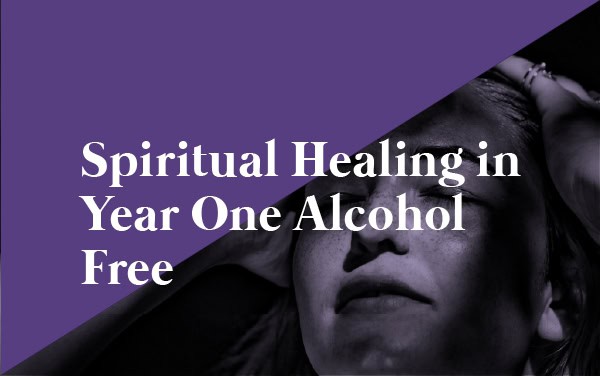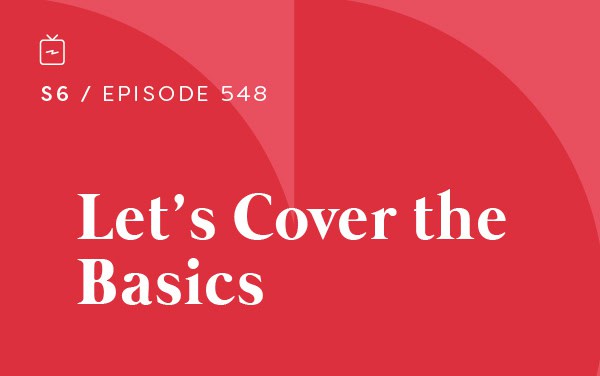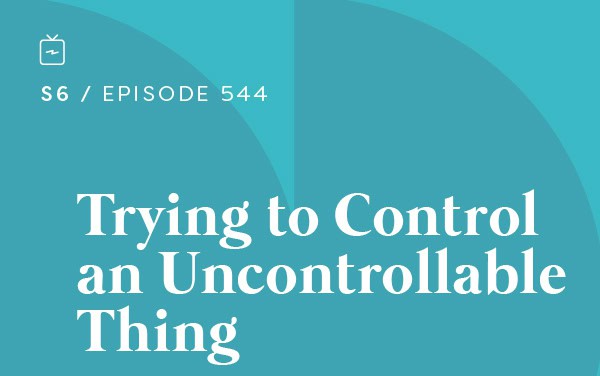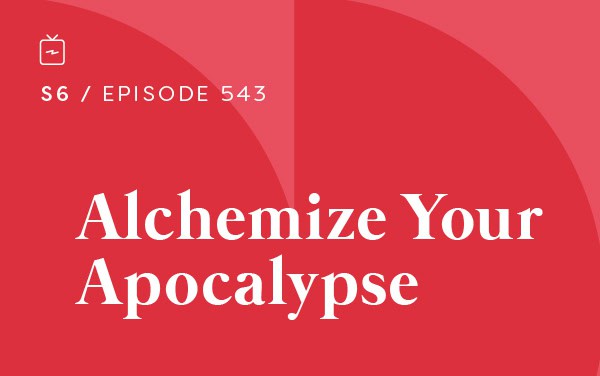
by Kerri MacFarlane | Oct 15, 2025 | Alcohol Free, Blog, Helpful Tips, The first Year
Spiritual healing after quitting alcohol can be subtle, surprising, and deeply meaningful. It’s also the focus of Part 3 in our three-month series on the healing that takes place in your first year alcohol-free.
In Part 1 we explored physical healing, and in Part 2 we covered mental healing. Now, we’re shifting to something less tangible but equally powerful—your connection to self, others, and the world around you.
Let’s dig in.
🌱 Spiritual Healing After Quitting Alcohol: What May Happen in Week One
- For many, nothing profound happens immediately. That’s normal.
- But you might have had a moment before your last drink when time seemed to pause—a flicker of presence that let you really see where alcohol was taking you.
- That moment of clarity, however fleeting, may have been the start.
🍃 First Month of Spiritual Healing After Quitting Alcohol
- Your intuition might quietly peek out and ask, “Is it safe to return yet?”
- You may feel a pull toward nature—a walk in the woods, leaning on a tree, or just sitting still under the sky.
- You might experience a few moments of pure gratitude—not for things, but for being.
- Even something simple, like watching a bird or a breeze in the trees, might hold your attention longer than usual.
🌌 Spiritual Growth and Awareness in Months 1–6 Alcohol-Free
- Synchronicities start happening—those “too weird to be coincidence” moments.
- You begin to feel the emotions of others more deeply, maybe even animals or the earth itself.
- You start listening to your intuition and trusting it.
- Your connection to something greater than yourself—something that doesn’t come in a bottle—starts to take root.
- Authentic wisdom bubbles up. Sometimes you surprise yourself with what you say (and yes, you sound a bit like a fortune cookie).
- You begin to sense the universe has a sense of humor—and you’re in on the joke.
✨ Spiritual Healing in Year One of Sobriety: A New Connection to Life
- You start to notice the spaces between life’s events, not just the events themselves.
- You realize this journey isn’t about becoming someone new—it’s about unbecoming what was never really you.
- Books like The Power of Now, The Dao, or The Artist’s Way might find their way into your life—often “accidentally.”
- You may pause before killing a spider, recognizing you’re both part of something shared.
- Decisions shift—you’re guided more by intuition than logic.
- Material things matter less. Moments matter more.
- You find yourself standing in awe of a canyon, a sunset, or a mountain—and feeling it all in a way you never used to.
- You begin seeking wisdom from ancestors, indigenous cultures, spiritual texts—things you once dismissed.
- You may start meditating or exploring your inner self.
- You discover flow states—where time disappears, and presence takes over.
🌊 Long-Term Spiritual Healing and Transformation in Sobriety
- You begin helping others heal, not by fixing, but by simply walking alongside them.
- You value silence and listening as much as speaking.
- Gratitude becomes your default mode—less about what’s missing, more about what already is.
- Creativity returns: music, poetry, painting, dancing—even spontaneous singing while cooking. (The Artist’s Way is a great guide here.)
- The dream world and waking world start to dance—you dream of an owl, then see one the next day.
- Your inner child reawakens—you feel playful, curious, light again.
- You feel less like a wave, more like the ocean. Life moves around you, but it no longer knocks you down.
- You stop labeling life events as “good” or “bad”—they just are, and somehow, they all fit.
- You begin to trust that everything is unfolding exactly as it should.
- And eventually, you realize:
What you’ve been searching for all along has been inside you the whole time.
🌟 The Healing Never Stops
So here we are—three parts, three layers of healing: physical, mental, and spiritual. This list? It’s just the beginning.
Sobriety doesn’t just take something away—it gives you back a connection you didn’t know you were missing. The healing deepens, the awareness expands, and the sense of peace grows.
Whether you’re a week in or years down the road—keep going. You’re not becoming someone new. You’re just remembering who you were all along.
📖 Missed a part? Catch up here:
👉 Part 1: Physical Healing After Quitting Alcohol
👉 Part 2: Mental Healing After Quitting Alcohol
#SpiritualHealingAfterQuittingAlcohol #AlcoholFreeLiving #SobrietyJourney #YearOneAF #EmotionalRecovery #SpiritualGrowth #SoberCurious #HealingInSobriety #RecoveryElevator #ThisIsAF #ConnectionIsTheOppositeOfAddiction

by Kris Oyen | Aug 18, 2025 | Podcast
Podcast: Play in new window | Download
Subscribe to the Recovery Elevator Podcast Apple Podcasts | | More
Today we have Amy. She is 41 years old and lives in Raleigh, NC. She took her last drink on December 12th, 2023.
This episode brought to you by:
Better Help – 10% off of your first month #sponsored
Exact Nature – use code RE20 to save 20% off of your order
October 2026 we have a new retreat we have yet to do. This is an in-person alcohol-free ukulele retreat taking place in Guanacaste, Costa Rica. There will be ukulele instruction in the mornings and Spanish immersion courses in the afternoon.
[02:01] Thoughts from Paul:
Addiction is disconnecting with the self and your fellow humans. More sobriety is connection with the self, your fellow humans and more. “I” equals illness, “we” equals wellness.
Quitting drinking is a perfect circle. Your drinking crisis is an opportunity for someone to help. Phrased with 12 step verbiage, your first step is someone else’s 12th step. And when you find your footing, you can then assist someone else in their drinking crisis.
When the soul is hurting, the healing only happens when you’re not alone. And speaking of being alone, listeners, you are not alone. You are not the only one who struggles with alcohol. You, along with the other listeners, are seeking not only sobriety but seeking a deeper connection with all. Seeking answers that the bottle can’t deliver. You are in the right place.
[07:37] Paul introduces Amy:
Amy is 41 years old and lives in Raleigh, NC with her husband and a three-year-old son. Amy says she is a theater nerd and does improv comedy for fun.
Amy grew up in the southwest side of Chicago where she says her father was an alcoholic. She has memories of being a child at AA and Al-Anon meetings with her parents as well as memories of her father taking her to bars when they would tell her mother they were somewhere else.
Amy had her first drink when she was 15 while going to a concert with older teens. There was a bottle passed around the group and they all got drunk. Later that night she was found in the field of the concert venue by paramedics and taken to the hospital to have her stomach pumped.
She began to live a double life throughout high school and college. Amy saw that if she got good grades and joined all of the clubs, she would get praise and recognition. On the flip side she would drink very hard, and it wasn’t uncommon for her to get alcohol poisoning. Only after going to grad school in New York was Amy able to calm down a bit.
After COVID, Amy and her husband were doing IVF. Amy says she didn’t drink much at this point, but after having the baby, she suffered from postpartum anxiety which led her to daily drinking as a tool to cope with it. Over time she would begin to try moderation but limiting herself to two drinks was difficult and led to binges.
Amy’s last bender was at a holiday work party. The next day she found herself hungover and asked herself how her drinking was any better than her father’s was when she was younger. She knew that she may be heading down a dangerous path, so Amy decided to call the local AA helpline.
Amy began going to AA meetings and found a sponsor. She shares that her mother was a great support because of her experience with Al-Anon and she understood what Amy was going through.
One of the best things for Amy was burning the ships and gaining accountability. Even after 18 months, Amy admits there is white knuckling at times. She realizes that after 25 years of drinking, it doesn’t all heal within 18 months, but she is grateful to be where she is and says that since getting sober, she hasn’t missed a day of her son’s life.
Amy’s parting piece of guidance: everything that she was looking for while getting drunk can be found in recovery and she found it in Café RE and AA. Take what works and leave the rest.
Recovery Elevator
It all starts from the inside out.
I love you guys.
Café RE – the social app for sober people
RE on Instagram
Recovery Elevator YouTube
Sobriety Tracker iTunes

by Kris Oyen | Jul 21, 2025 | Podcast
Podcast: Play in new window | Download
Subscribe to the Recovery Elevator Podcast Apple Podcasts | | More
Today we have Thea. She is 55 years old from Madison, WI and took her last drink on February 10th, 2019
This episode brought to you by:
Better Help – 10% off of your first month #sponsored
Exact Nature – 20% off your order with code RE20
We have just a couple of cabin spots left for our upcoming retreat in Bozeman, Montana. This retreat is from August 6th through 10th.
Coming in January 2026, our AF Ukelele Course. Registration for that opens in December.
Also coming next year in October 2026, we will have an in-person ukelele retreat where we’re having Spanish instruction in the afternoons. This will be in Costa Rica. More information will be coming soon about that event.
[02:45] Thoughts from Paul:
On the journey into an alcohol-free life, it almost always consists of a chapter where we are trying to control the uncontrollable. But something takes place that we aren’t aware of and that’s that alcohol has become uncontrollable – and we haven’t realized it yet.
You might be asking yourself if your drinking has reached that point and may have searched for a sobriety podcast because there were aspects of your drinking that you were unable to control. The longer you try to control the uncontrollable, the less sanity you are left with.
Paul wants you to ask yourself if you are trying to control the uncontrollable thing. He and many of us have learned that we cannot control our drinking, but the opportunities are endless in what we CAN do without alcohol in our lives, the same can be true for you.
[07:06] Paul introduces Thea:
Thea is 55 years old, grew up in a small town in Wisconsin but now lives in Madison with her husband of almost 30 years, and they have three grown boys. Thea works in education. She loves to cook, bake, read, and attend sporting events.
Thea says she drank a little in high school, but it wasn’t out of control. After going to college where the culture involved binge drinking, Thea drank more. Being someone that didn’t suffer from hangovers, she never looked at her drinking as a problem.
Thea met her husband after college when they married and had three kids. She says she would binge drink occasionally, but not enough to create red flags and her husband can take it or leave it. Thea says she didn’t drink during her pregnancies or drink every night, but as her kids got older and needed her less, she fell into the habit of drinking more.
Thea would drink socially but preferred to drink covertly at home where she could have as much as she wanted. Over time she began to feel like she needed the alcohol to function and was becoming physically addicted to it.
A few years later, some family members had an intervention with Thea. The message she took away was that she needed to hide her drinking better in the future. The following summer, Thea’s sister-in-law called her out on her drinking again, and they went to the ER. It was recommended that she go to a detox center which Thea refused to do. She opted to detox on her own, which is not recommended. After doing that, she enrolled in an IOP but was just going through the motions to try and become a normal drinker again – she had no intention of quitting.
Thea feels she was getting nudges from God to address the issue. It wasn’t until February 10th, 2019, that the message finally got through. Thea was very sick and throwing up blood. She was in and out of the hospital dealing with the symptoms of her failing liver. Thea feels that something finally clicked, and she has not wanted to have a drink since that first day when she went to the hospital.
After two years sober, Thea started listening to podcasts and reading quit lit. She eventually found her way back to AA and it feels like home this time. Thea is very open about her recovery with her family and is grateful they never gave up on her.
Recovery Elevator
It all starts from the inside out.
I love you guys.
RE on Instagram
Recovery Elevator YouTube
Sobriety Tracker iTunes
Café RE
by Paul Churchill | Jul 14, 2025
October 17th - 24th 2026 Registration OPENS Monday, March 9, 2026 Sober Ukulele Retreat Costa Rica 2026 Strum, Speak Spanish & Soak Up Paradise – Alcohol-FreeOctober 17-24, 2026 | Venado, Costa Rica | Limited to 20 Travelers Ready to Trade Your Hangover for...

by Kris Oyen | Jul 14, 2025 | Podcast
Podcast: Play in new window | Download
Subscribe to the Recovery Elevator Podcast Apple Podcasts | | More
Today we have Ronnie. He is 41 years old from Kiowa, CO and took his last drink on June 1st, 2025.
This episode brought to you by:
Better Help – 10% off of your first month #sponsored
Café RE – the social app for sober people.
[03:17] Thoughts from Paul:
From the cavemen to the ancient Greeks, to modern humans, there’s always an apocalypse on the horizon. The apocalypse outside of us, we can’t control and there has never not been one. The only apocalypse you can control is the one caused by alcohol which is happening inside of you.
Paul reminds us that no matter how fearful the news programs and the politicians want you to be, we’ve never not had an external apocalypse looming and geological record will tell you the same.
Disconnect from all of the news and connect to yourself, others, nature, a ripe mango, a snuggle with a dog because you know what? We’re okay. Get yourself some time away from alcohol and you’re going to be very much okay.
[07:54] Paul introduces Ronnie:
Ronnie is 41 years old, lives in Kiowa, CO with his wife and four children. Ronnie works as a home inspector. For fun, Ronnie enjoys spending time with his kids and spending time outside. His family has 40 acres and a variety of animals which his children show with 4-H.
Ronnie began drinking when he was 17 after discovering that alcohol was a magical elixir that suppressed his inhibitions and insecurities. By the time Ronnie was in college, he was partying regularly. After a few semesters, he had failed out of school, moved back home and began working in construction.
After some time, Ronnie moved to Colorado and began working for a faith-based non-profit organization in addition to being a home inspector on the side. Drinking was something they did not allow their staff to do. This enabled Ronnie to remain mostly sober during that time, only drinking when he was around friends back home.
Ronnie and his wife married in 2011 and moved to Portland, Oregon. He grew accustomed to the culture of going out for cups of coffee, but when they returned to Colorado Ronnie saw that the culture there was going out for beers. This began alcohol creeping back into his life slowly.
When COVID happened, his job with the non-profit ended and Ronnie was home inspecting full time. Ronnie says they lost two and a half streams of income, and it left him depressed and having trouble with night terrors. He started using alcohol to help him sleep. It turned into daily drinking which led Ronnie to start exploring whether or not he had an issue. In the process, he discovered the RE podcast.
Around this time, Ronnie began to try moderation. He was using a sobriety tracker and said he reset it over 20 times before he was able to get a week. After he was able to stay sober for three weeks, he thought he had it under control but before long was back to drinking daily.
On that night of what ended up being Ronnie’s last drink, he awoke to his heart racing and massive anxiety. He told his wife that he thought he had a problem which she said she knew, and instead of being judgmental, she asked what she could do to help. The next day Ronnie learned that his wife had contacted some friends that had dealt with addictions, and they were all ready to help.
Within the first day, Ronnie threw out all of the alcohol in the home. This opened up the conversation with his kids about addictions and healthy ways of coping with emotions. Over the last 12 days, Ronnie has seen his sleep improved. He has realized that alcohol no longer has a place in his or his family’s life.
Ronnie says that every time he tells someone about his addiction, a weight lifts. This motivates him to keep going. He is finding healthy ways to deal with stress and sleep. Exercise, meditation, audiobooks and listening to the RE podcast have been helpful to him on this journey.
Recovery Elevator
You took the elevator down, you gotta take the stairs back up
We can do this
I love you guys
RE on Instagram
Recovery Elevator YouTube
Sobriety Tracker iTunes






